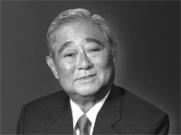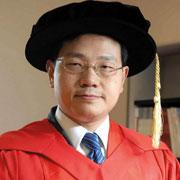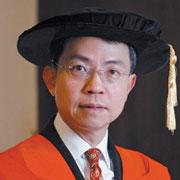
a milestone in the University's history.
To date, a total of 120 Endowed Professorships have been established.

 |
William M W Mong Professorship in Cardiology“The setting up of endowed professorships will enhance local medical research and development, benefiting mankind.” Dr William M W Mong |
 |
Tse Hung-FatAppointed in 2008 The Cardiology Division is one of the leading centre’s in the world for pioneering heart therapies. It is one of the few medical facilities in the world to use patient’s own bone marrow stem cells to treat heart disease and to use DNA techniques to develop biological pacemakers. The division has also performed the world’s first atrial defibrillator and single lead pacing devices and the Asian-Pacific laser-assisted pacemaker lead extraction and pacing for heart failure. It is carrying out research into multiple aspects of coronary heart disease, cardiac pacing, arrhythmia, heart failure, hypertension and cardiac regeneration. Professor Tse Hung-Fat is a heart specialist, pioneering several new treatments, including stem cell research, for use in cardiac regeneration. He and his team are also at the forefront of conducting clinical trials with human patients in this field. As Academic Chief in Cardiology Division and Clinical Professor in the Department of Medicine he is also responsible for organising teaching and cardio-vascular research in the Medical Faculty. Professor Tse is planning to conduct a large-scale clinical trial in different parts of Asia to continue studies of his novel catheter-based approach to transplant a patient’s bone marrow cells into their own heart to regenerate blood vessels. The ultimate goal is to make this a widely used treatment of patients with severe heart disease in the future. The team’s research has been widely publicised in terms of the use of this new technology in treating patients with heart disease and Professor Tse and his colleagues are presenting their data in the United States and elsewhere in the world. Additionally Professor Tse holds a number of US patents based on his research work. In 2002 he patented a bayesian discriminator for rapidly detecting arrhythmias and in 2006 he obtained a provisional patent on a novel genetic approaches to reduce or inhibit tumorgenicity of human embryonic stem cells and derivatives following transplantation. Another of his inventions is the catheter-based gene delivery method to construct a bioartificial sinoatrial node in mammalian heart. Internationally he is on the General Medical Council and a member of the Royal College of Physicians and the North American Society Pacing and Electrophysiology. And he is a Fellow of the American College of Cardiology, the Royal College of Physicians (F.R.C.P., Edinburgh), and the Royal College of Physicians and Surgeon (F.R.C.P., Glasgow). While locally, Professor Tse is a Fellow of the Hong Kong College of Cardiology, the Hong Kong College of Physician and the Hong Kong Academy of Medicine. He also receives numerous invitations to be a guest speaker, including several major cardiology meetings in United Status, Europe and Asia”. He is also widely published and is either the reviewer or on the editorial committee of 32 local and international scholarly journals including the British Medical Journal, Lancet, the American Journal of Medicine and the Journal of American College of Cardiology. |

Lau Chu-PakAppointed in 2005
The Cardiology Division of the Department of Medicine is a world renowned centre of implantable cardiac device research. It performed the world’s first atrial defibrillator and single lead pacing devices; and, first in Asian-Pacific region, the laser-assisted pacemaker lead extraction and pacing for heart failure. It is one of the four centres in the world to use patient’s own bone marrow stem cells to treat heart diseases, and to use DNA techniques to develop biological pacemakers.
Professor Lau has been a major force in the development of research and clinical services in cardiology at the University of Hong Kong and the Queen Mary Hospital. A graduate of the University in 1981, he has authored or edited four books, contributed to more than 30 chapters of cardiology textbooks, and published more than 300 articles in international journals. He joined the faculty in 1984, and was promoted to a personal Chair in Medicine in 1997. Professor Lau serves on the editorial board of several major cardiology journals, and was the Secretary General of the XII World Congress on Cardiac Pacing and Electrophysiology held in Hong Kong in February, 2003. That gathering attracted over 4,000 participants from around the world. He is the immediate past President of the Institute of Cardiovascular Science and Medicine, and is currently the President of the Hong Kong College of Cardiology.Professor Lau is widely known internationally for his views on cardiology, especially in matters concerning pacing and cardiac arrhythmias. Professor Lau, who is regularly invited to give plenary lectures at international meetings and has served as a Visiting Professor at numerous universities in China, has also contributed significantly to the community, particularly in the prevention and rehabilitation of heart diseases. He is an adviser to, and contributing founder of, the Care For Your Heart programme, a major patient self-help group. He sits on the executive board of community heart health programmes such as the Hong Kong Heart Foundation, and is the Chairman of Jump Rope for the Heart Programme and World Heart Day in Hong Kong. |